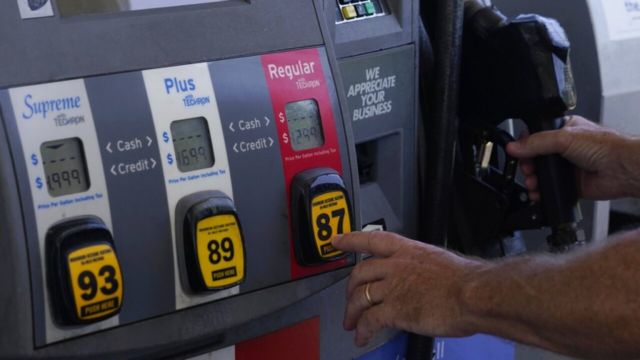Recent California legislation may cause gas prices to rise sooner than many Californians have anticipated.
The Golden State and the neighboring states that depend on it for fuel may become even more costly than they are now due to this and the job losses caused by the legislation. How did this happen, and what can we do?
Why the shutdown of the refinery in Los Angeles is so significant?
Phillips 66, an international energy business based in the United States, declared in October 2024 that it would shut down its refinery in Carson, Los Angeles.
The refinery’s two buildings, located in Wilmington and Carson, were constructed in 1923.
The facilities are part of important energy infrastructure and are connected via a pipeline. The main and most famous airport in California, LAX, is only 15 miles southeast of them.
Crude oil is converted at the refinery into aviation, diesel, and gasoline fuels.
More precisely, the refinery converts 165 million barrels of crude oil per day into 65 kb/d of diesel and jet fuel and 85 kb/d of gasoline.
8.57% of California’s remaining refining capacity is accounted for by the facility.
900 local jobs would be lost immediately as a result of the refinery’s closure, and the rising cost of living would cause countless more to be lost.
The refinery’s closure will result in a shortage, which will raise the price of food, rent, and services as well as the cost of traveling by car, bus, or airplane.
Why close the refinery in Los Angeles if it is so vital?
Phillips 66’s plan to close the refinery may be viewed as part of the company’s larger transition to renewable energy.
According to the company, its next phase will include producing renewable hydrogen, alternative high-octane fuel blend stocks, and drop-in liquid fuels from solid biomass or solid waste streams.

The company’s recent practice of closing facilities includes the closure of the refinery in Los Angeles.
The San Francisco Bay area’s Rodeo refinery was shut down in 2023 to make way for a Renewable Energy Complex.
After California Governor Gavin Newsom signed the ABX2-1 energy law, the refinery in Los Angeles was shut down.
The purpose of the measure is to stop abrupt changes in gas prices.
This occurs at a time when other states are loosening their laws (such as Maine, which is making it simpler to get a license in this fashion).
The bill’s control of the gas business is causing controversy, despite its noble intentions.
According to the measure, refiners must keep minimum gas supplies and create a strategy to avoid shortages during maintenance outages.
The cost of processing crude oil for the company would rise as a result.
Implications for California and the neighboring states
California’s refineries provide refined oil to most of Arizona and Nevada as well as to California itself.
For the economies of California and the neighboring states, the closure of the refinery in Los Angeles might have disastrous consequences.
The law has the power to disrupt local commerce and enterprise.
The anticipated consequences of the closure are so dire that Governors Joe Lombardo of Nevada and Katie Hobbs of Arizona united in essentially pleading with Newsom not to sign the law.
The cost of eggs is probably going to go up even further.
In light of this new law, what should we do?
It is crucial to keep in mind that even though the measure has been signed, it is still quite controversial and intensely debated.
Unfortunately, consumers will bear the brunt of the bill’s repercussions as lawmakers attempt to address it, making life more costly for them.
Right now, our only option is to hope that something else, like hydrogen in this cutting-edge engine, can take the place of our dependency on oil.







Leave a Comment